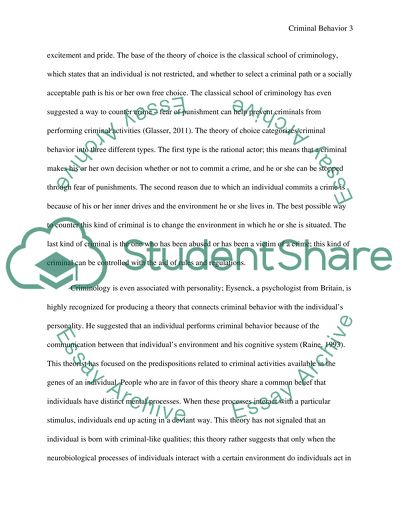Theoretical Dimension Involving Criminal Behavior Research Paper. Retrieved from https://studentshare.org/law/1456225-theoretical-dimension-involving-criminal-behavior
Theoretical Dimension Involving Criminal Behavior Research Paper. https://studentshare.org/law/1456225-theoretical-dimension-involving-criminal-behavior.


